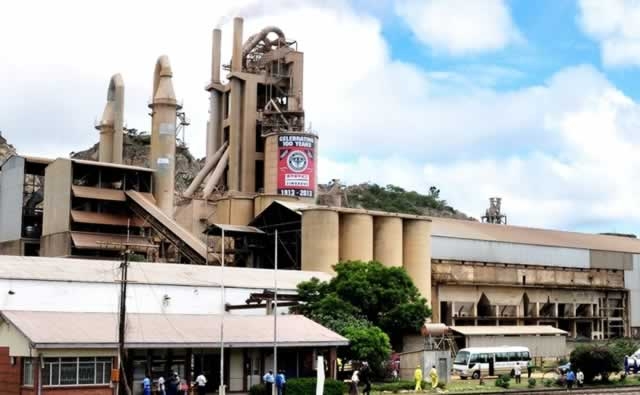

Pretoria Portland Cement (PPC), has shelved plans to shut down its Colleen Bawn plant in Gwanda, Zimbabwe’s Matabeleland South Province, following fruitful engagements with Government on concerns that threatened the firm’s viability.PPC had hinted at the possibility of closing the Gwanda factory citing pressure from cheap imported clinker by rival producers, rampant smuggling of cement products and high costs, which frustrated its operations.Management appealed to Government for protection on fear of losing its over 70-year investment in the plant, which would trigger job losses and compromise livelihoods for nearly 4,000 people in the community, who depend on the factory.
“We have continued to engage the Zimbabwean Government. PPC Zimbabwe appreciates the support we have so far received, as expressed in the 2018 Budget proposal, which proposed that clinker be removed from the open general import licence in order to support local production.“PPC is committed to continue with local production as supported by Government,” said PPC in e-mailed responses.The Colleen Bawn plant is the backbone of PPC operations in Zimbabwe responsible for lime mining and production of clinker, a major raw material in cement manufacturing.
The firm also operates a giant factory on the outskirts of the second largest city, Bulawayo.Last year in March PPC commissioned its US$82 million state of the art plant in Harare under its bold expansion strategy. The new factory boasts the latest technology in the construction industry, designed in adherence with global emissions standards.PPC is the dominant cement producer in Zimbabwe and competes with Larfage, Sino-Zim and Kwekwe-based Livetouch Cement.PPC has said it targets improving its business through increased sales buoyed by positive sentiments under the new dispensation and supportive measures enunciated in the 2018 fiscal policy statement.
“We envisage increased local sales volumes on the back of Government backed housing initiatives and other infrastructural developments as proposed in the 2018 budget.“However, exports into the SADC region remain a challenge due to the high USD cost base in Zimbabwe which renders exports uncompetitive,” said PPC.PPC plans to optimise its operations seeking to gain leverage from existing investment in the rest of Africa.The firm, however, said it continues to battle challenges such as liquidity constrains in Zimbabwe, which affects its offshore payments, high production costs and pressure from cheap imports.
More news
- PART 2: CONCRETE IN THE DESIGN OF A UNIQUE LUXURY HOME IN GEORGE, SOUTH AFRICA
- PART 1: CONCRETE IN THE DESIGN OF A UNIQUE LUXURY HOME IN GEORGE, SOUTH AFRICA
- MVULE GARDENS, AFRICA’S LARGEST 3D-PRINTED AFFORDABLE HOUSING PROJECT
- PART 3: HARNESSING THE POTENTIAL OF HIGH SULPHUR FLY ASH IN CONCRETE PRODUCTION
- PART 2: HARNESSING THE POTENTIAL OF HIGH SULPHUR FLY ASH IN CONCRETE PRODUCTION





